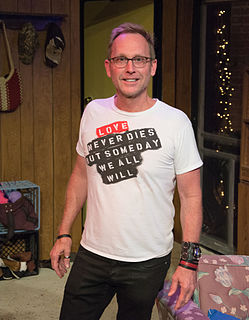A Quote by John Krasinski
Directing was a great experience, but it's terrifying to have the responsibility of carving up the other actors' performances.
Related Quotes
I do feel that scripts get developed now to a point where they're sort of actor-proof. If the actor is not very good, the narrative still survives because it's all in the dialogue. Not to say there aren't great performances in English-language films, because there are every year, but the 1970s were awash with great performances, and I was wondering whether it had to do with the amount of space and the amount of responsibility given to the actors.
When we see that we are not made up by the other's experience, we then have the capacity not to take responsibility for what is now genuinely and for the first time not ours. And as a result, we can get just as close to the other's experience (even the other's experience of how dissapointing, enraging, or disapprovable we are!) without any need to react defensively to it or be guiltily compliant with it.
What Clint Eastwood meant was when you are directing and starring in a film, there's a temptation to spend more time on the other actors' performances, and then when you get to your own work, you kind of go, "Oh, yeah, well, let's cut that." And he said, "Take your time and make sure you do your work right." It's especially good advice if you're going from one career to another.
Well, actors get very frustrated with giving control to other people. They have their own ideas and wants for their characters. Warren Beatty once told me that he thought actors ended up directing out of frustration. If you have a strong sense of how to communicate a film, you should direct. The problem is that it is a huge commitment. I'd rather direct a play than a film due to the time. A movie can tie you up for a year or more.
The first fundamental of successful city life: People must take a modicum of responsibility for each other even if they have no ties to each other. This is a lesson no one learns by being told. It is learned from the experience of having other people without ties of kinship or close friendship or formal responsibility to you take a modicum of responsibility for you.




































